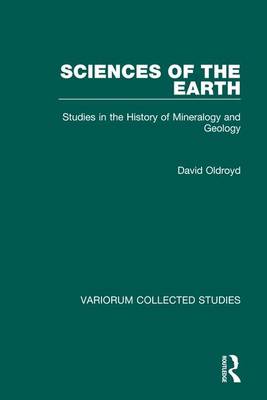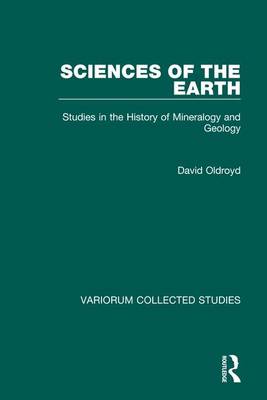
Door een staking bij bpost kan je online bestelling op dit moment iets langer onderweg zijn dan voorzien. Dringend iets nodig? Onze winkels ontvangen jou met open armen!
- Afhalen na 1 uur in een winkel met voorraad
- Gratis thuislevering in België vanaf € 30
- Ruim aanbod met 7 miljoen producten
Door een staking bij bpost kan je online bestelling op dit moment iets langer onderweg zijn dan voorzien. Dringend iets nodig? Onze winkels ontvangen jou met open armen!
- Afhalen na 1 uur in een winkel met voorraad
- Gratis thuislevering in België vanaf € 30
- Ruim aanbod met 7 miljoen producten
Zoeken
€ 259,95
+ 519 punten
Omschrijving
Sciences of the Earth first presents a connected series of papers on the history of mineralogy in relation to chemistry, from the Renaissance to the beginning of the 19th century. It considers some of the important philosophical ideas that underpinned early thinking about minerals and earths, and also the practicalities of mineral analysis. Other papers in the volume examine the influence of historicist thinking in the emergence of historical geology; the application of Michel Foucault's ideas to the mineral kingdom; the geological ideas of Robert Hooke, with reference to his views on scientific method; the 'problem' of Whig history of science, considering as example Archibald Geikie's work as historian of geology; and the application of 'grid/group' theory to early 19th-century English geology. To open, there is a paper dealing with a Roman theory of volcanic activity, little known to historians of science.
Specificaties
Betrokkenen
- Auteur(s):
- Uitgeverij:
Inhoud
- Aantal bladzijden:
- 356
- Taal:
- Engels
- Reeks:
- Reeksnummer:
- nr. 628
Eigenschappen
- Productcode (EAN):
- 9780860787709
- Verschijningsdatum:
- 27/11/1998
- Uitvoering:
- Hardcover
- Formaat:
- Genaaid
- Afmetingen:
- 149 mm x 224 mm
- Gewicht:
- 625 g

Alleen bij Standaard Boekhandel
+ 519 punten op je klantenkaart van Standaard Boekhandel
Beoordelingen
We publiceren alleen reviews die voldoen aan de voorwaarden voor reviews. Bekijk onze voorwaarden voor reviews.











